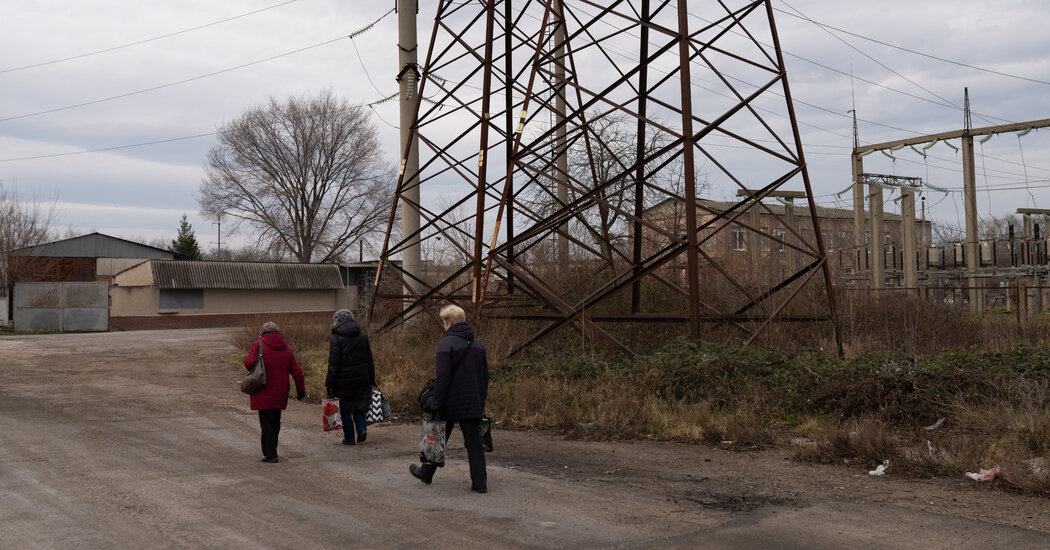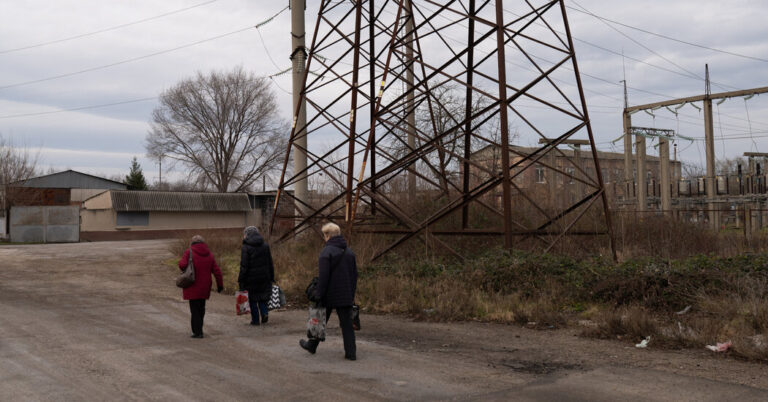After struggling without heat for six days, a breakaway region of the eastern European country of Moldova is now also short of electricity, with authorities ordering eight hours of power cuts a day to prevent the electricity system from being overloaded collapse.
The energy crisis in Transnistria, a sliver of pro-Russian territory between Moldova and Ukraine, began on January 1 when Moscow cut off the supply of natural gas through a pipeline running through Ukraine. It intensified this week as residents tried to keep warm using electric heaters, overloading and often blowing up an antiquated Soviet-era power grid. Power outages have in turn disrupted water supplies.
The disruption of Russian gas supplies, caused by Ukraine’s refusal to renew an expiring agreement on gas transit, has raised questions about the survival of Transnistria, which declared itself an independent microstate in 1990 and has since survived thanks to economic and military support from Moscow.
Inhabited largely by Russian speakers, Transnistria on Tuesday celebrated Orthodox Christmas, usually a festive occasion, but this year made painful by the absence of gas for cooking and heating. In a somber Christmas message, the region’s president, Vadim Krasnoselsky, urged citizens not to give up, telling them that “it is very important to hope for the best and believe that everything can be overcome.”
Moldova’s Prime Minister, Dorin Recean, said Monday that his government had offered to help Transnistria, located mainly on the left or eastern bank of the Dniester River, but had been rebuffed.
Transnistria’s leader, Krasnoselsky, said in a speech broadcast by local media that he had not received any offers of help, accusing Moldova of trying to “strangle” his breakaway territory and force it to give up its claims to statehood, a status that is not recognized by any country.
Indirectly addressing the question of whether Russia, by cutting off gas, has actually given up on Transnistria, Krasnoselsky said that “rumors about Russia abandoning Transnistria” were spread by “hostile” outsiders to create panic.
Prime Minister Recean, speaking to reporters at an online press conference, said that “Moldova’s goal is to reintegrate the country,” but said this will be done peacefully and could only happen once Russia withdraws its troops.” illegally stationed there.”
The escalating energy crisis, however, has raised the possibility that people could begin to flee the enclave, leaving it an empty shell, unless Russia intervenes using alternative gas pipelines that border Ukraine.
“If they can no longer survive on the Left Bank without electricity, heat and water, then we will house them here, on the Right Bank,” Recean said.
Moscow has so far refused to bring gas to Transnistria using a pipeline under the Black Sea to Turkey, which connects to a gas route through the Balkans to Moldova and the separatist enclave. This would mean additional transit costs for Russian energy giant Gazprom, which, even before Ukraine closed the cheapest route, was already losing large sums of money because it delivered gas largely free of charge to Transnistria.
On Tuesday, Kranoselsky asked residents to unplug electric heaters “so that an already difficult situation does not worsen,” noting that 160 emergency power outages had occurred the previous day. Local media published photographs of burned fuse boxes and reported numerous electrical fires. Military field kitchens have appeared on the streets of Tiraspol, the region’s capital, to provide residents with hot food.
Russia sent troops to Transnistria as peacekeepers during a brief war in 1992 between Russian-speaking separatists and Romanian-speaking fighters from Moldova, but they are still there more than three decades later.
Unable to replenish its forces since the start of its full-scale invasion of Ukraine nearly three years ago, Russia has increasingly relied on local supplies and manpower to maintain its military force in Transnistria of around 1,500 soldiers.





